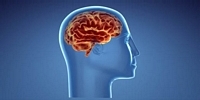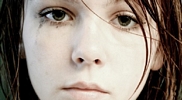|
|
 Acne (1,500) Acne (1,500)
 Addictions (1,500) Addictions (1,500)
 Advice (1,500) Advice (1,500)
 Allergies (1,092) Allergies (1,092)
 Alternative Medicine (1,500) Alternative Medicine (1,500)
 Anti Aging (1,500) Anti Aging (1,500)
 Breakup (1,500) Breakup (1,500)
 Cancer (1,499) Cancer (1,499)
 Dental Care (1,500) Dental Care (1,500)
 Disabilities (1,500) Disabilities (1,500)
 Divorce (1,500) Divorce (1,500)
 Elderly Care (1,498) Elderly Care (1,498)
 Goal Setting (1,500) Goal Setting (1,500)
 Hair Loss (1,500) Hair Loss (1,500)
 Health and Safety (1,497) Health and Safety (1,497)
 Hearing (1,500) Hearing (1,500)
 Law of Attraction (1,499) Law of Attraction (1,499)
 Marriage (1,500) Marriage (1,500)
 Medicine (1,497) Medicine (1,497)
 Meditation (1,499) Meditation (1,499)
 Men's Health (1,500) Men's Health (1,500)
 Mental Health (1,500) Mental Health (1,500)
 Motivational (1,500) Motivational (1,500)
 Nutrition (1,495) Nutrition (1,495)
 Personal Injury (1,499) Personal Injury (1,499)
 Plastic Surgeries (1,500) Plastic Surgeries (1,500)
 Pregnancy (1,496) Pregnancy (1,496)
 Psychology (1,500) Psychology (1,500)
 Public Speaking (1,500) Public Speaking (1,500)
 Quit Smoking (1,500) Quit Smoking (1,500)
 Religion (1,499) Religion (1,499)
 Self Help (1,500) Self Help (1,500)
 Skin Care (1,500) Skin Care (1,500)
 Sleep (1,500) Sleep (1,500)
 Stress Management (1,500) Stress Management (1,500)
 Teenagers (1,492) Teenagers (1,492)
 Time Management (1,500) Time Management (1,500)
 Weddings (1,500) Weddings (1,500)
 Wellness (1,500) Wellness (1,500)
 Women's Health (1,500) Women's Health (1,500)
 Women's Issues (1,500) Women's Issues (1,500)
|
There are three main treatments for ovarian cancer, once a diagnosis is made. These are surgery, chemotherapy, and radiation. In some cases it will be recommended to have two or even all three of these treatments. When chemotherapy is recommended, it is usually given after the surgery in 6 doses spaced 3 weeks apart. This is called "first line" because it is the first time chemo is administered.
The chemotherapy drugs are injected intravenously, often by way of a port which your oncologist will place in your chest or arm. Sometimes intraperitoneal chemo is used which injects the drugs directly into the abdomen.
The standard initial therapy suggested by doctors uses a combination of a platinum-based drug such as carboplatin or cisplatin along with a taxane such as paclitaxel or docetaxel.
Chemotherapy drugs kill cancer cells that are left in your body after surgery, but they also damage normal cells, as the drugs do not differentiate between normal and diseased. The simple explanation is that they work by destroying rapidly-dividing cells which is a description of cancer cells. Unfortunately, other cells in the body also fall under this category and are also damaged in the process. The hair follicles are an example, which is why most patients experience hair loss. It is only a temporary condition though and the hair will begin to grow back almost immediately after the chemo is stopped, although in some cases it will look different at first. Other healthy cells that are damaged include red and white blood cells, platelets (which are needed for clotting), and cells that line the gastrointestinal tract. This can often cause the nausea which is so common with the treatment.
Because the chemo drugs can damage the bone marrow that normally produce cells, patients can experience low blood cell counts and often must take yet another medication to encourage the bone marrow to begin producing cells again. The combination of all of these drugs sometimes causes people to have mild forgetfulness and memory loss often referred to as "chemo brain." This should go away once treatments end.
|
|
|



